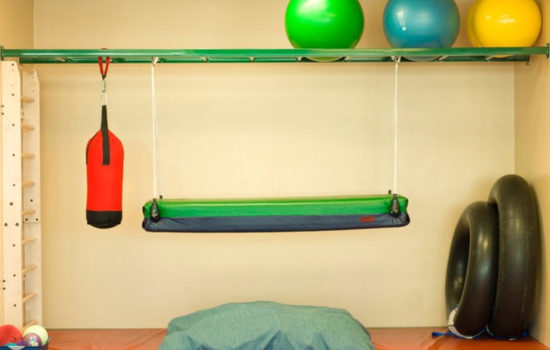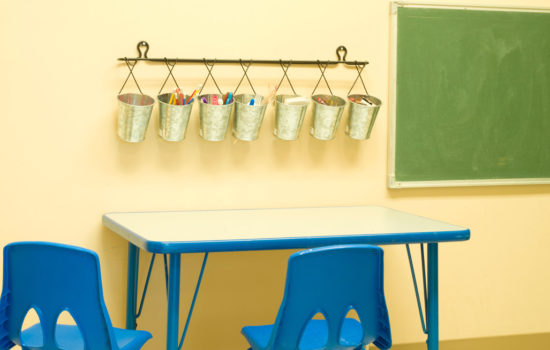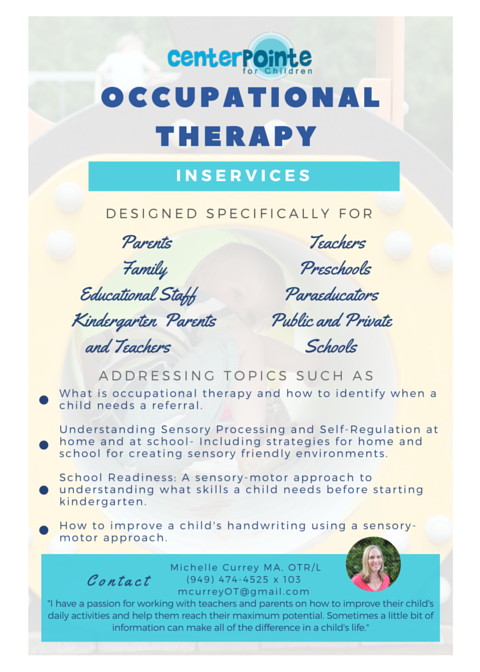Services
Here at Centerpointe for Children, our goal is to provide you and your family with professional quality of care, under the guise of your child’s best day ever! We are experts at masking challenging goals as playful opportunities, and have a pretty fun time doing it!

Occupational Therapy
Occupational therapy refers to the practice of using meaningful and purposeful activities to promote development, independence, well being and enhancing quality of life. When working with the pediatric population, therapists examine the activities and roles that ‘occupy’ a child’s life, such as being a student, a playmate, and a family member.
Activities that support the roles of a child are:
- Work
- Dressing
- Learning
- Handwriting
- Play
- Sports
- Socializing
- Feeding
- Rest
- Grooming
- Self Regulation
- Self care
- School Readiness
- Accessing playground
- Ability to sleep well

What is Sensory Integration?
Sensory integration is our brain’s ability to process sensory information from our body and environment, resulting in the child being able to respond successfully at home, at school, and in the community.
We gather information through the following sensory systems:
- Proprioception (muscle and joint position)
- Vestibular (head movement through space)
- Tactile (touch)
- Olfactory (smell)
- Gustatory (taste)
- Visual (seeing)
- Auditory (hearing)
The perception and organization of this information is how we develop an understanding of ourselves and the world around us. It supports our motor development, social and emotional growth, levels of alertness and ability to learn. Through a child’s active participation in his development, he promotes physical and emotional health, creates a strong sense of self and identity through engagement (alone and with others), and builds life skills and routines.



